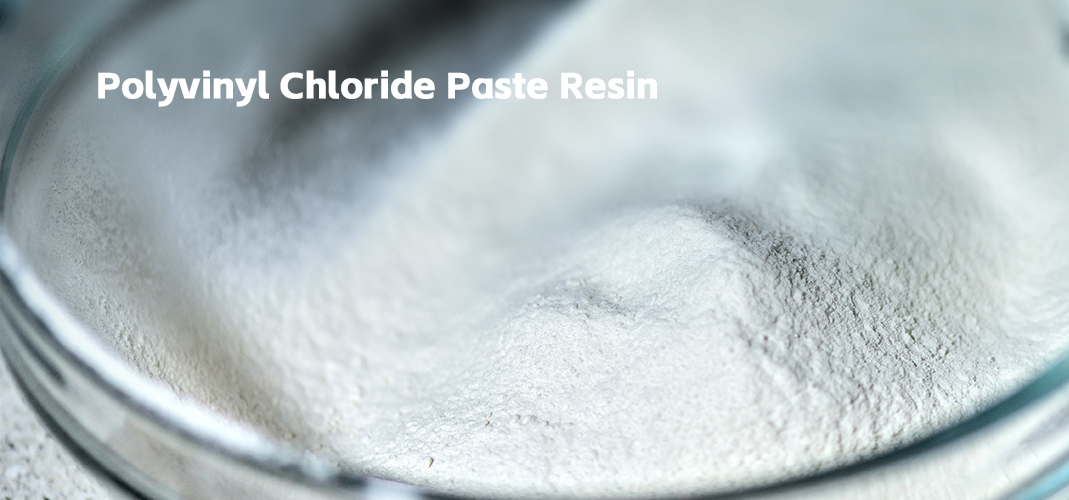
Preparation and Application of Polyvinyl Chloride Paste Resin in the Construction Sector
2025-07-15 17:16Polyvinyl Chloride Paste Resin (also known as plastisol PVC or PVC sol) is widely used in the construction sector due to its unique rheological properties and excellent processing characteristics. It can form a stable paste without the need for solvents or large amounts of plasticizers, making it easy to coat, dip, or cast.
Preparation of Polyvinyl Chloride Paste Resin
The preparation of Polyvinyl Chloride Paste Resin primarily involves emulsion polymerization or microsuspension polymerization. These methods allow for precise control over the polymer's particle size and distribution, which in turn influences the final paste's viscosity, storage stability, and processing performance.
Monomer Preparation and Purification: First, highly purified vinyl chloride monomer is essential. The monomer undergoes degassing and dehydration to ensure a smooth polymerization reaction and to enhance product purity.
Emulsifier System Selection: Choosing the right emulsifier (such as sodium dodecyl sulfate, polyvinyl alcohol, etc.) is crucial. Emulsifiers stabilize monomer droplets in the aqueous phase, forming an emulsion, and affect emulsion stability during polymerization and the final resin's particle morphology.
Initiator Selection and Dosage: Water-soluble initiators like potassium persulfate, ammonium persulfate, or water-soluble azo initiators are commonly used. The initiator's dosage and addition method influence the polymerization rate, molecular weight, and the polymer's microstructure.
Polymerization Reaction:
Emulsion Polymerization: In a reactor, vinyl chloride monomer, water, emulsifiers, and initiators are mixed and polymerized under specific temperature and pressure conditions. Agitation and temperature control maintain a stable reaction. After the reaction, the resin is separated from water using methods like spray drying or centrifugal separation, yielding fine, spherical, or irregularly shaped powder resin.
Microsuspension Polymerization: Similar to emulsion polymerization, but it emphasizes forming even smaller monomer droplets, typically using a composite stabilizer system. This helps achieve more uniform and finer resin particles, leading to pastes with lower viscosity and better flow properties.
Post-treatment and Modification: After polymerization, the obtained resin undergoes washing and drying to remove residual emulsifiers and monomers. To meet specific application needs, a small amount of additives can be incorporated at this stage for modification, such as improving its plasticizer absorption performance or enhancing thermal stability.
Applications of Polyvinyl Chloride Paste Resin in the Construction Sector
Polyvinyl Chloride Paste Resin is a vital material in construction due to its easy processability, cost-effectiveness, and excellent weather resistance.
Waterproofing Coatings and Roofing Materials: Highly flexible PVC paste resin can be used to produce high-elasticity waterproofing coatings and weather-resistant roofing membranes. These products offer excellent UV resistance, aging resistance, and anti-permeation properties, suitable for waterproofing basements, roofs, and pools. For instance, Fast curing PVC waterproofing coating is particularly suitable for large construction projects due to its high application efficiency.
Flooring Materials: PVC paste resin is a key component in producing wear-resistant floor tiles and elastic floor paints. By mixing it with plasticizers, fillers, and pigments, a wide range of colorful, comfortable, easy-to-clean, and highly durable flooring materials can be created, widely used in hospitals, schools, commercial spaces, and residential areas. For example, Anti-slip wear-resistant PVC flooring adhesive can effectively improve safety in public areas.
Wallpapers and Wall Coverings: In wall decoration, PVC paste resin is used to produce washable wallpapers and heavy-duty wall coverings. These not only offer rich patterns and textures but also possess moisture-proof, stain-resistant, and easy-to-clean properties, enhancing the aesthetic appeal and practicality of interior environments.
Sealants and Adhesives: Leveraging the binding properties of PVC paste resin, high-strength construction sealants can be formulated for window and door installation, pipe sealing, and construction joint sealing. These sealants exhibit good adhesion, flexibility, and weather resistance, effectively preventing moisture penetration and improving a building's thermal and sound insulation.
Molding and Potting Materials: In the production of precast and decorative components, PVC paste resin can serve as a potting material, filling molds to form various building parts, such as decorative moldings and lightweight partition panels. Its fluidity allows it to easily fill complex molds and cure into shape.
Moving forward, with increasing demands for environmental friendliness and sustainability in building materials, the preparation and application of PVC paste resin will also evolve towards low volatile organic compounds (VOCs), recyclability, and the use of bio-based plasticizers to meet the needs of green building.

